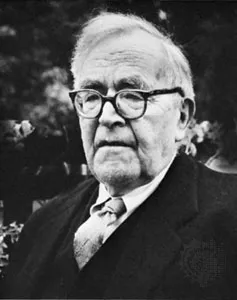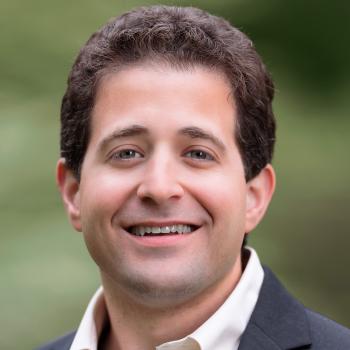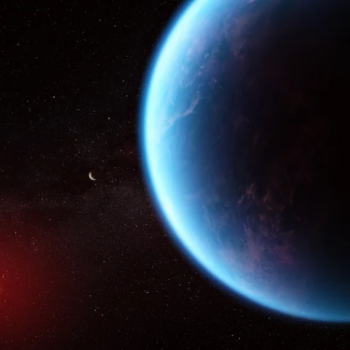What is Vocation? Ask Sang Pil Yun

What is vocation? We all know what vocation means, right? A vocation is like a profession. But it’s more personal and high-minded. Your or my vocation – our calling – comes from God and we live out our vocation regardless of what our profession is. Right?
In medieval Europe priests and nuns had vocations. They were called to take vows and devote their lives to contemplative service to God.
During the Protestant Reformation, Martin Luther gave us the Priesthood of All Believers. This extended the concept of vocation to every lay Christian. If the shoemaker would make a high quality pair of shoes, that fulfilled the shoemaker’s calling from God.
Now we ask: what is vocation in the theology of Karl Barth? Sang Pil Yun has the answer.
Meet Sang Pil Yun

Sang Pil Yun is a Presbyterian pastor in South Korea. On March 27, 2025, soon-to-become Doctor Yun successfully defended his dissertation at the Graduate Theological Union. Sang Pil’s Doktormutter is renowned Reformation scholar Kirsi Stjerna. One reader is Paul S. Chung, known widely for his leadership in the international Public Theology in Forum. I served as third reader.
Now, you might ask, just what was the dissertation title? Here it is: “Christ’s Calling and the Formation of Christian Existence: A Christological Inquiry into the Concept of Calling in Karl Barth’s Doctrine of Reconciliation.”
Next you will want to know his thesis. Here it is:
Karl Barth’s doctrine of calling or vocation offers a dogmatic theory that the prophetic call of Jesus Christ transforms a person into a particular form of Christian existence. The mutual indwelling between Christ and a Christian establishes him or her as a co-agent with Christ who renders the service of His prophetic speech and action for the world (Yun, 2025).
How does Karl Barth answer the question: what is vocation?

In the Church Dogmatics, says the almost doctor Yun, Barth argues that the calling of Jesus Christ extends to all humanity under the universal light of reconciliation, However, not all individuals become Christians in an existential sense. Christian existence is marked by a personal response to the call, distinguishing those who recognize and embrace their new identity in Christ from those who remain unaware or resistant. This Christian particularity signals that the Christian vocation does not result in indiscriminate labeling but rather in a transformative engagement with Christ’s call (Yun, 2025, p. 203).
Let’s say it another way. First, Jesus Christ redeems the world, objectively speaking. Second, the community of God – the community of God includes both the election of Israel and the calling of the Church – generates a witness within humanity that prophetically announces God’s universal grace. Third, it is the calling of the Holy Spirit within our individual subjectivity that generates distinctively Christian existence. Finally, in unity with Christ, the Christian individual witnesses to God’s grace and lives in devoted love toward the neighbor and all of creation.
This is the Christian’s calling regardless of profession.
Conclusion
What is Vocation? We’ve asked Sang Pil Yun and we’ve asked Karl Barth. We did not ask New York Times columnist David Brooks. Yet, here is what Brooks says. “The summons to vocation is a very holy thing. It feels mystical, like a call from deep to deep” (Brooks, 2019, p. 91).
What does your and my vocation call us to do in the present crisis? In the year 2025, many of us are overcome with anxiety as the once stable world order begins to fragment and dragons of tyranny rear their ugly heads. Lost is the cultural glue that previously bound many of the world’s peoples together in reverence for justice and commitment to compassion.
Our planet desperately needs people of good will to eat lugubriously the fruits hanging from trees in the Holy Spirit’s orchard. “The fruit of the Spirit is love, joy, peace, patience, kindness, generosity, faithfulness, gentleness, and self-control” (Galatians 5:21-22). That’s a calling we can answer regardless of our profession.
Patheos ST 2028 What is Vocation? Ask Sang Pil Yun
ST 2005 What is Justification by Faith?
ST 2018 What is Rahner’s Rule?
ST 2022 What is Scandinavian Creation Theology?
Big Bang and the Bible: Hyung-Joo Lee
Patheos PT 5008. The Public Theology of Paul Chung
Substack PT 3262. DOGE Fires the Holy Spirit
▓

Ted Peters directs traffic at the intersection of science, religion, and ethics. Peters is an emeritus professor at the Graduate Theological Union, where he co-edits the journal, Theology and Science, with Robert John Russell on behalf of the Center for Theology and the Natural Sciences, in Berkeley, California, USA. He authored Playing God? Genetic Determinism and Human Freedom? (Routledge, 2nd ed., 2002) as well as Science, Theology, and Ethics (Ashgate 2003). Along with Martinez Hewlett, Joshua Moritz, and Robert John Russell, he co-edited, Astrotheology: Science and Theology Meet Extraterrestrial Intelligence (2018). Along with Octavio Chon Torres, Joseph Seckbach, and Russell Gordon, he co-edited, Astrobiology: Science, Ethics, and Public Policy (Scrivener 2021). He has just edited The Promise and Perils of AI and IA: New Technology Meets Religion, Theology, and Ethics (ATF 2025) and with Arvin Gouw co-edited The CRISPR Revolution in Science, Theology and Ethics (Bloomsbury 2025). See his website: TedsTimelyTake.com.
▓
References
Barth, K. (1936-1962). Church Dogmatics, 4 Volumes. Edinburgh: T&T Clark.
Brooks, D. (2019). The Second Mountain. New York: Random House.
Chung, P. (2016). Postcolonial Public Theology: Faith, Scientific Rationality, and Prophetic Dialogue. Eugene OR: Cascade Books.
Peters, T. (2024). Communicatio Idiomatum in Deep Incarnation. Dialog 63:1, 1-8; DOI: 10.1111/dial.12845.
Stjerna, K. (2021). Lutheran Theology: A Grammar of Faith. Edeinburgh: T & T Clark.
Yun, S. P. (2025). Christ’s Calling and the Formation of Christian Existence: A Christological Inquiry into the Concept of Calling in Karl Barth’s Doctrine of Reconciliation. Berkeley CA: Graduate Theological Union.

















